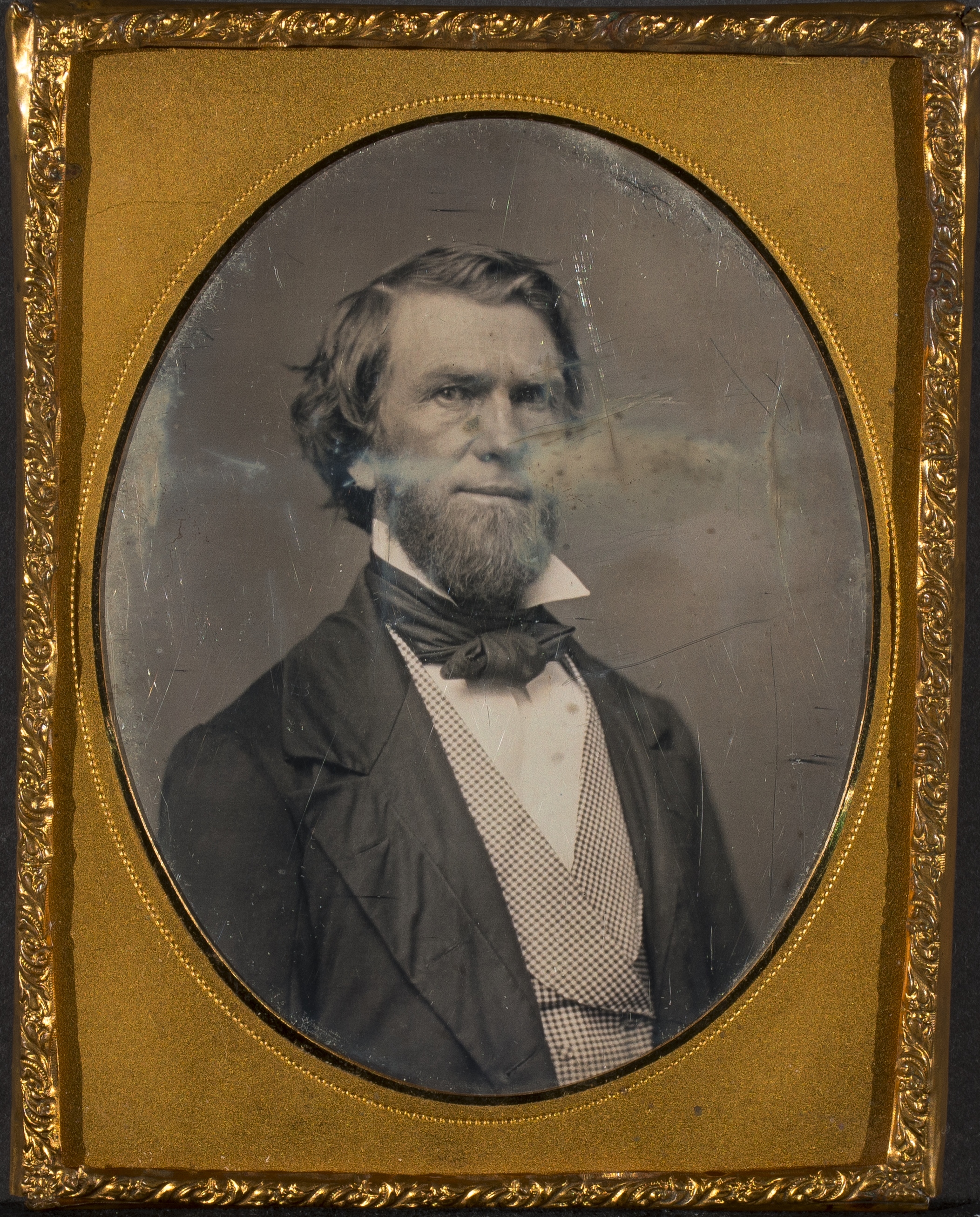
Abelard Guthrie was an early Wyandotte County settler and a founder of the township of Quindaro, Kansas. Born in Ohio, Guthrie was adopted into the Wyandot tribe when he married Nancy Quindaro Brown, daughter of Chief Adam Brown, Jr. He was given the name Tah-keh’-yoh-shrah’-tseh, which means “the man with two brains”. Early in his career, Guthrie worked as clerk for the Agent for the Ohio Indians and helped negotiate the treaty ceding Wyandotte lands in Ohio to the United States government. The Wyandots were removed to Kansas in July of 1843 and Guthrie followed them in 1844.
As pressure built to open the territory for settlement, Guthrie was named as delegate to Congress at a Wyandot Council House meeting. In 1852 he went to Washington, but was refused recognition. Southern politicians feared additional anti-slavery representation and Guthrie was an early free-state advocate. With Charles Robinson, he established the free-state town on the Missouri River, "Quindaro," named for his wife, on land purchased from her tribesmen. They selected a site for the town six miles above the mouth of the Kansas River and the settlement grew quickly. By August 1857, there were 600 residents and 100 buildings including several hotels and a number of churches under construction.
At its peak, Quindaro boasted a population of 1,000 with doctors, lawyers, mechanics, and a newspaper. In 1858, the Legislature granted a charter to Charles Robinson and others to operate a ferry across the river from Quindaro and two years later Guthrie and others received a renewal of the charter. However, the Panic of 1857 brought development to a halt. Guthrie, who had become a wealthy man, was suddenly unable to pay his bills. The Kansas Land Trust, a Boston company formed in 1856 to invest in Kansas land had bought extensively around Quindaro and promised its local agent, Charles Robinson, a share of its profits. In 1857, the Land Trust sold a large amount of land to Robinson, who gave his note, co-signed by Guthrie. By 1860, Robinson had paid nothing, leaving Guthrie heavily in debt.
Quindaro struggled to survive during the Civil War, and in 1862 the state legislature of Kansas repealed the act which had incorporated it. After the demise of the town, Guthrie continued to live nearby, at odds with the Wyandot tribe and with those who he thought had cheated him when Quindaro collapsed. His father in law had always disapproved of his marriage to Nancy and Guthrie had angered many Wyandots in his financial dealings on their behalf. Guthrie died of heart failure in Washington, D. C. in 1873 and was buried at the Congressional Cemetery.